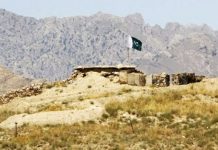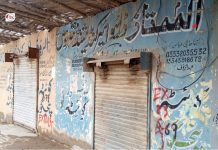Author: Zaarain Baloch
In a surprising turn of events, Pakistan’s National Assembly has given the green signal to a bill proposing the establishment of Pak-China Gwadar University in Lahore, Punjab’s capital city. The move has left many scratching their heads as the university’s name bears the city of Gwadar in Balochistan, yet it is slated to be built in Lahore, sparking heated debates on social media. The approval has left many questioning the decision-making process and priorities of the Pakistani state. Lawmakers who sanctioned the bill provided no rationale for this choice, fueling public outrage and criticism.
The news spread rapidly on social media, particularly among students from the Makran region, who accused the authorities of hypocrisy for building a Gwadar university in Lahore instead of in Gwadar itself. This incident further highlighted the larger issue of skewed priorities and resource allocation within the country.
The approval process of this bill was highly contentious, with 29 bills passed in a single hour during a session where only 15 members of the ruling alliance were present, and no opposition members were in attendance. Among these bills, 24 were related to the establishment of new universities and educational institutions, including Pak China Gwadar University. Shockingly, most of these bills were approved without any proper scrutiny or referral to relevant committees.
Various individuals and groups expressed their disapproval of the decision. Local residents from Gwadar argued that they have yet to see the promised benefits of the China-Pakistan Economic Corridor (CPEC) and felt that the university’s establishment in Lahore was an injustice to their region. Activists and academics also raised concerns about the already struggling education system in Gwadar and other areas of Balochistan.
Reacting to the NA’s approval of the controversial bill, Baloch Human Rights activist Mahrang Baloch criticized the state for exploiting Balochistan’s resources in the name of development.
Economist Maryam Zia Baloch, working for the IMF, called for fair resource allocation and questioned why the university was not established in Gwadar if it was funded.
Tahir Bizenjo, a prominent leader of the National Party and member of Pakistan’s Senate, advocated for the university’s establishment in Gwadar, considering the educational disparity between regions.
Former MNA and National Democratic Movement leader, Bushra Gohar, questioned the decision to build the university in Lahore instead of Gwadar.
Economist Uzair Younus was blunter in his reaction, saying that after this legislation, the state should not ask “Why are the Baloch rebelling?”
Baloch “pro-independence” groups have long opposed the China-Pakistan Economic Corridor (CPEC), which they call an “imperialist” project beset on plundering the resources of Balochistan. These groups view the mega-infrastructure project as exploitative and detrimental to the interests of Balochistan, accusing the government of exploiting their resources without offering any significant benefits to the local population. As a result, they have resorted to carrying out attacks on Chinese interests and infrastructure projects in Balochistan and beyond.
Notably, the Baloch Liberation Army’s Majeed Brigade has been at the forefront of these attacks. In one suicide attack in April 2022, the Majeed Brigade targeted the professors at the Confucius Institute at the University of Karachi, resulting in the deaths of four people, including three Chinese academics. The attack had severe repercussions on the China-Pakistan relationship, creating deep mistrust on the part of the Chinese authorities regarding Pakistan’s ability to provide security to Chinese nationals. Consequently, China withdrew its academics from all Confucius Institutes in Pakistan, leaving these institutions in the hands of Pakistani teachers.
Baloch “pro-independence” groups and political parties have long maintained a steadfast stance against parliamentary politics, asserting that it merely serves the interests of Punjab while legitimizing the exploitation of Balochistan. The recent legislation gives credence to their arguments. Despite a notable presence of lawmakers from Balochistan in the National Assembly, the bill sanctioning the establishment of a university bearing the name of Gwadar, in Lahore was pushed through at lightning speed. This development has raised significant concerns among analysts, questioning the ability of Baloch parliamentarians to safeguard the interests of their people, as they seemingly couldn’t prevent the diversion of Balochistan’s resources towards setting up universities in Punjab.
As a result, the Baloch members of the National Assembly now find themselves at a critical juncture, tasked with proving their capacity to protect the rights and welfare of the people of Balochistan, an aspect they have often struggled with in the past.
The establishment of a university named after Gwadar in Lahore, without any clear rationale, has only intensified the sense of neglect and alienation felt by the Baloch people. It serves as a stark reminder of the persistent disparities in development and opportunities between the regions, leaving the people of Balochistan questioning their place within the larger framework.





























